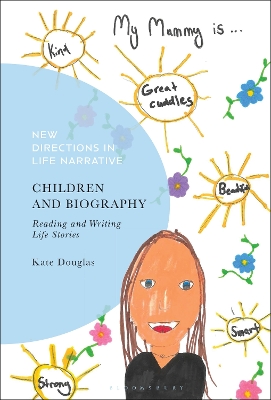New Directions in Life Narrative
1 total work
The first study of life narratives produced for, about, and written by children, this book examines the recent popularity of children’s biographies and how they engage with the biggest issues of our time: environmental change, health crises, education, and children’s personal and political development.
Beginning with a literary-historical overview, Children and Biography proceeds to examine 21st-century examples and trends such as illustrated texts including Women in Science, the Fantastically Great Women Who… books, Rebel Dogs, Goodnight Stories for Rebel Girls, Kids Who Did, My Beautiful Birds and The Journey. The book also considers archives of children’s writings and drawings, in particular the testimonies of child asylum seekers, children’s biographical art, and ‘Lockdown diaries’ produced during the Covid-19 pandemic. By analyzing these works alongside empirical studies into how such material is received by child readers, and how texts generated by children are perceived both by them and their parents, this book provides new knowledge on how biographies for children are produced and read.
Comprehensive and original, Children and Biography, presents an ethical methodological framework for scholarly practice when reading, witnessing and interpreting children’s life narratives. The book offers a mandate for future researchers: to place children’s voices and writing at the centre of inquiries in ways that facilitate genuine agency for child authors.
Beginning with a literary-historical overview, Children and Biography proceeds to examine 21st-century examples and trends such as illustrated texts including Women in Science, the Fantastically Great Women Who… books, Rebel Dogs, Goodnight Stories for Rebel Girls, Kids Who Did, My Beautiful Birds and The Journey. The book also considers archives of children’s writings and drawings, in particular the testimonies of child asylum seekers, children’s biographical art, and ‘Lockdown diaries’ produced during the Covid-19 pandemic. By analyzing these works alongside empirical studies into how such material is received by child readers, and how texts generated by children are perceived both by them and their parents, this book provides new knowledge on how biographies for children are produced and read.
Comprehensive and original, Children and Biography, presents an ethical methodological framework for scholarly practice when reading, witnessing and interpreting children’s life narratives. The book offers a mandate for future researchers: to place children’s voices and writing at the centre of inquiries in ways that facilitate genuine agency for child authors.
